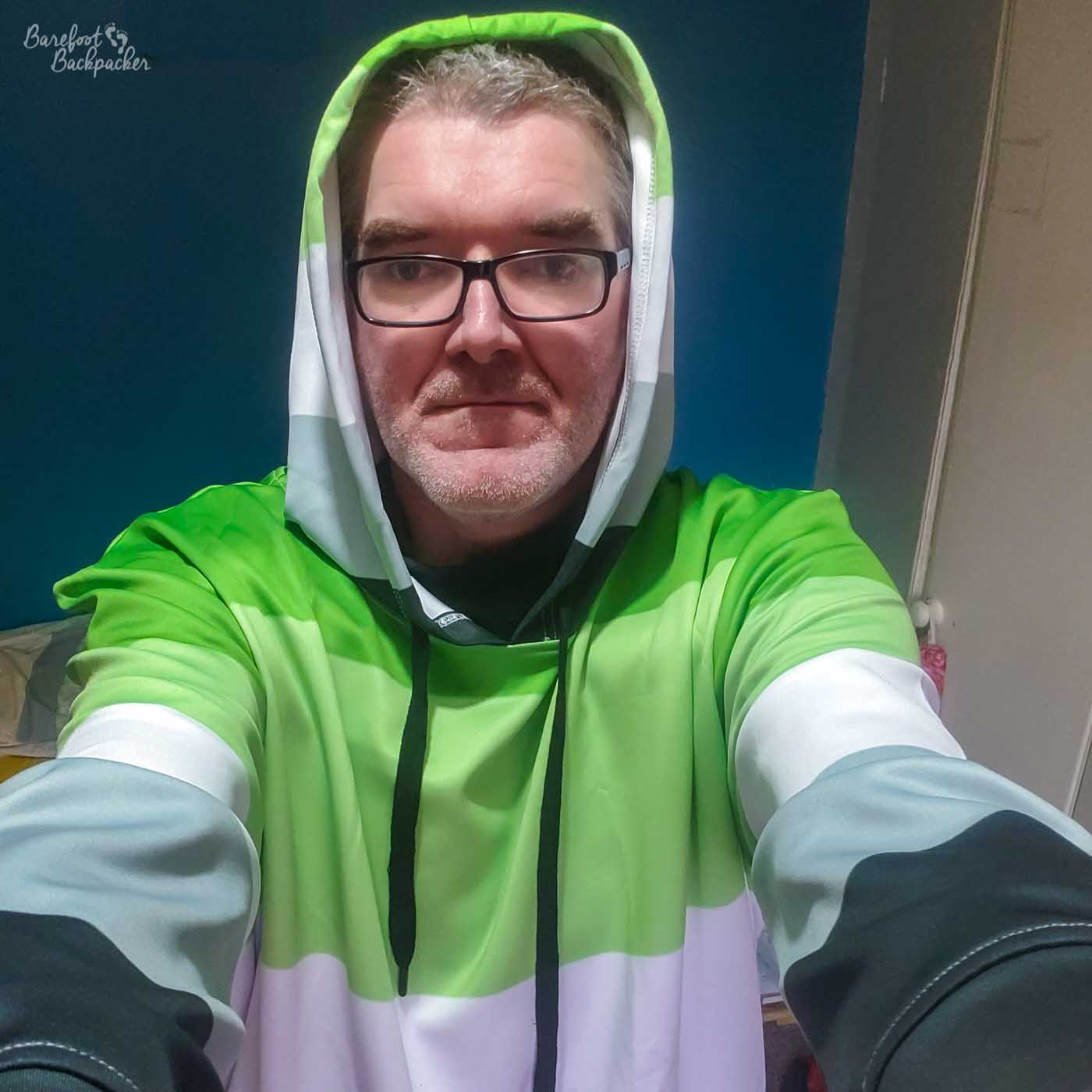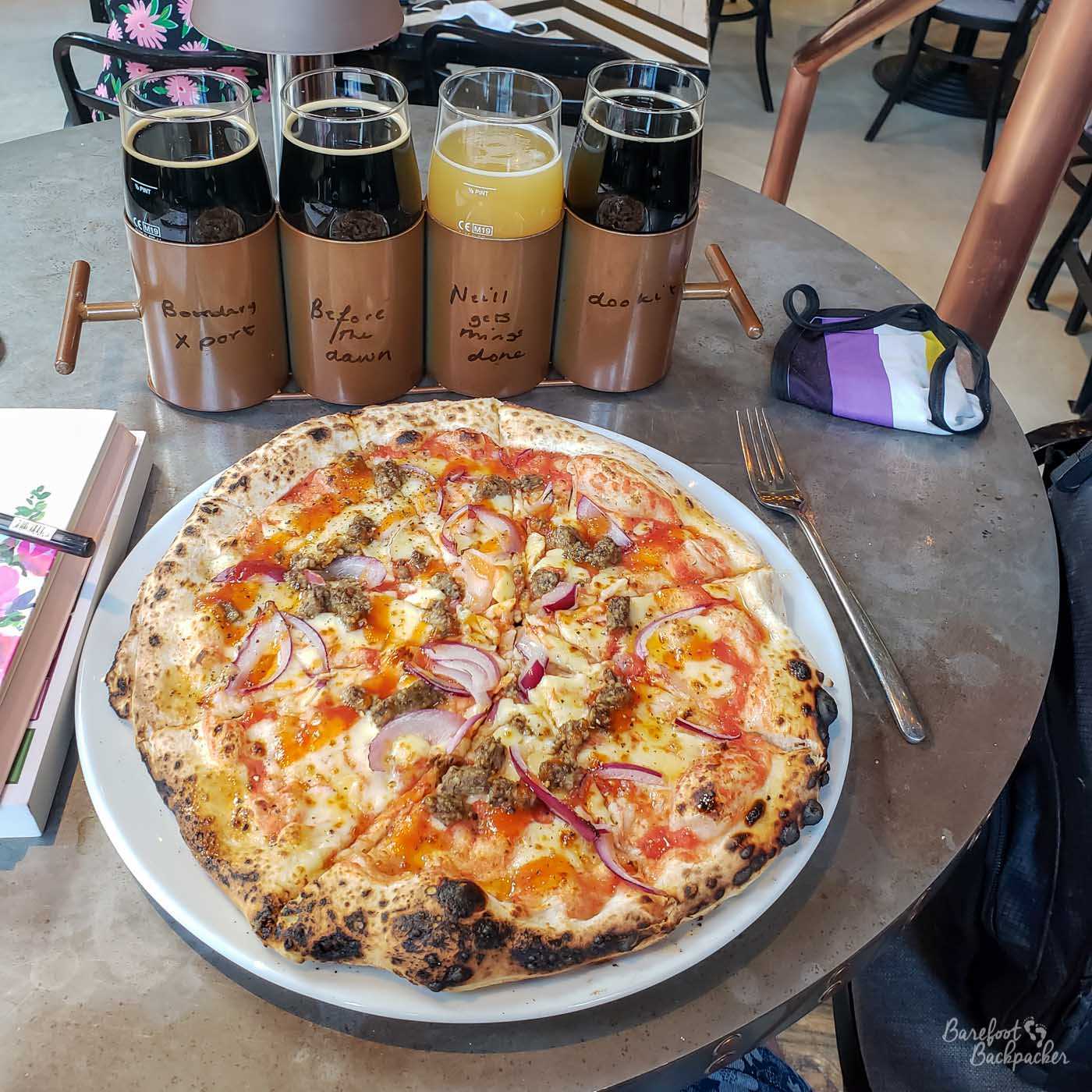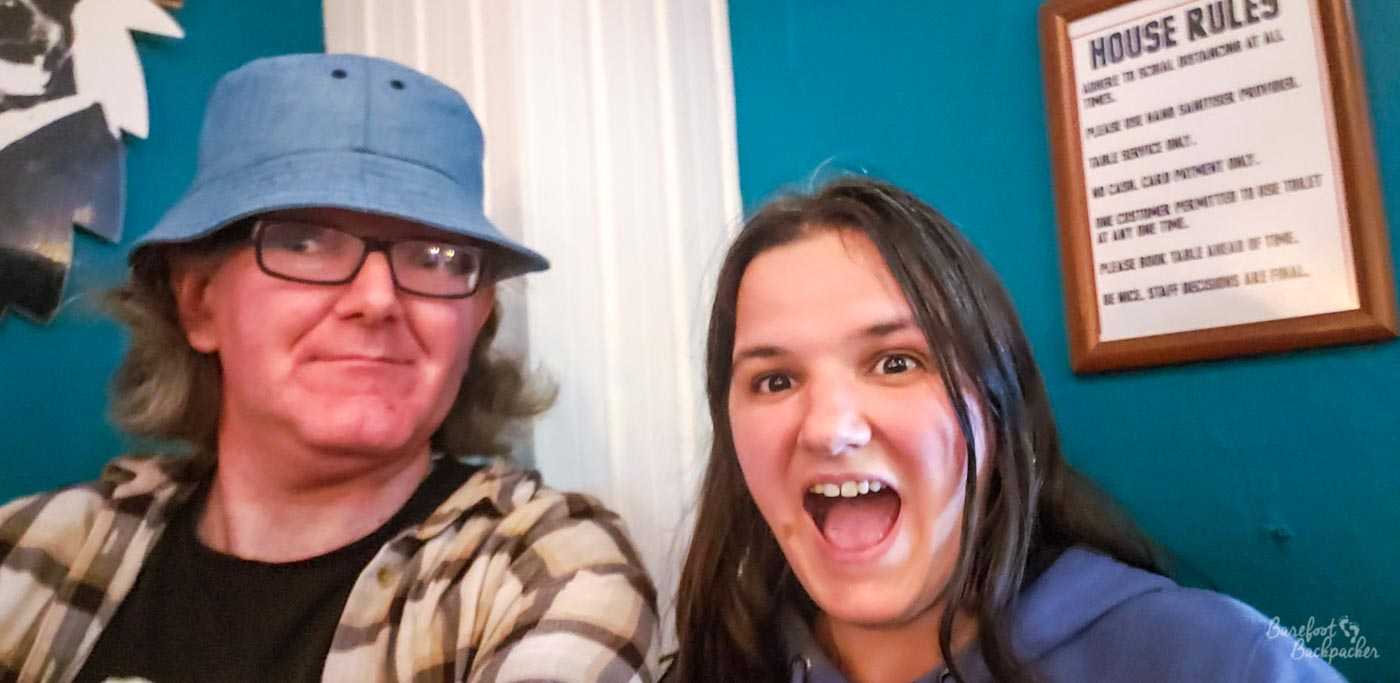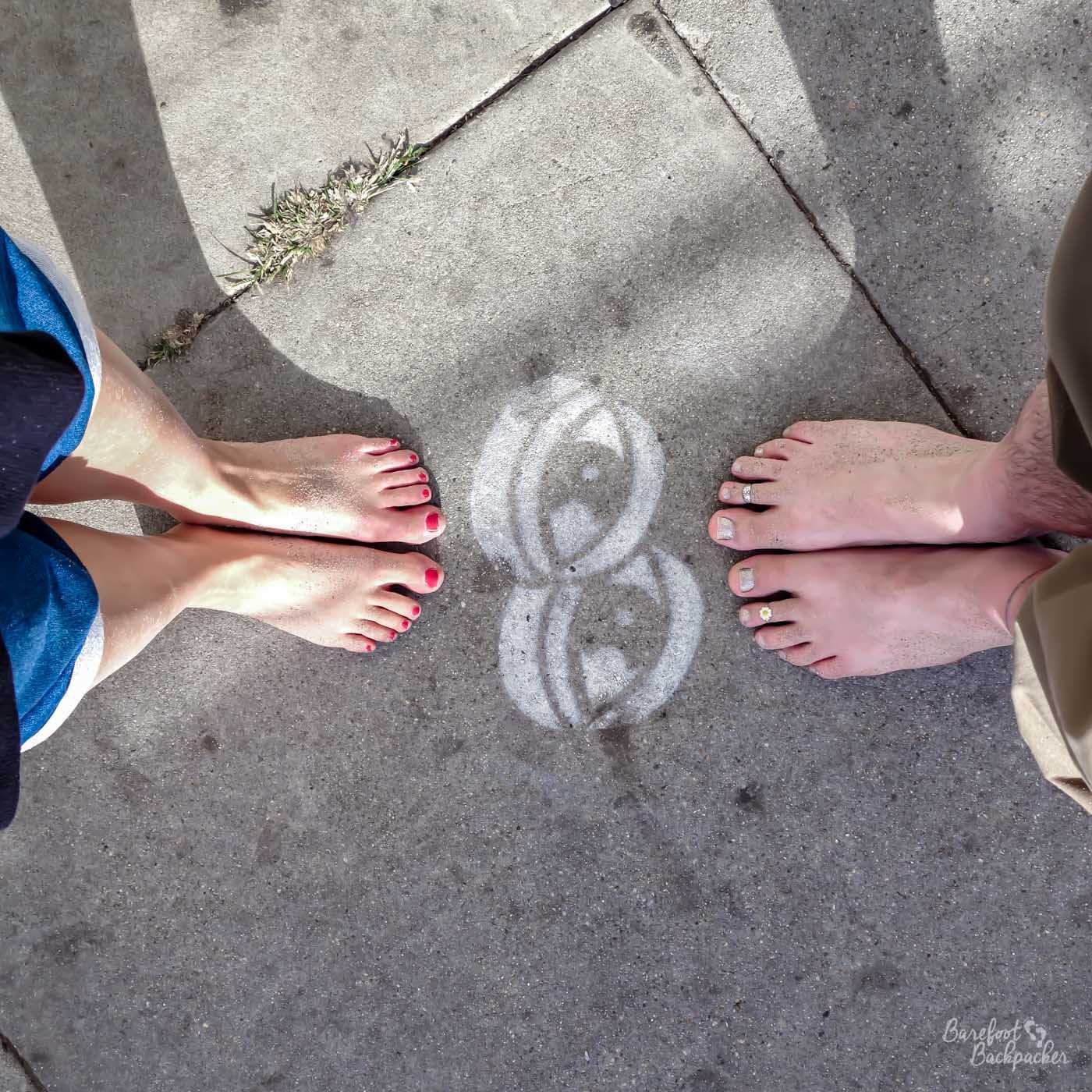I’ve spoken a lot about asexuality, but there’s another word I’ve frequently used – aromantic. Clearly that’s not a spelling error and I’m not talking about either how herbs and spices smell, nor making deep points about organic chemistry. But what does aromantic mean, in this case, and why is it important to talk about?
What is aromantic?
Aromantic means, simply, “the lack of romantic attraction”. It is the romantic counterpart to asexuality being the lack of sexual attraction.
For most people, romantic and sexual attraction are the same. If you’re a woman who is sexually attracted to a man, you’re heterosexual, and the chances are you’re likely to be romantically attracted to them as well. However, when I talked about asexuality and love, I spoke about the difference between sexual and romantic attraction, and how they don’t always align. Aside from men wanting to experiment with gay-coded sexual experiences, this is more often seen with asexual people finding they have romantic attraction to people. However, the opposite is also true. There are people who don’t experience romantic attraction, who don’t (in common parlance, ‘fall in love’) who do experience sexual attraction. And of course there are people who, to all intents and purposes, experience neither. Hi, I’m the Barefoot Backpacker, pleased to meet you.

Me wearing my aromantic pride hoodie.
What is romantic attraction?
Romantic attraction is what you experience when you’re romantically attracted to someone. By which I mean, all those feelings in society, all those references in pop-culture, about love? Perhaps it’s when someone says they have ‘a crush’ on someone. Maybe it’s when you have that longing for a person and miss them when they’re not around. Maybe it’s when you walk down the road holding their hand, or cuddling them on the sofa, and thinking there’s no place you’d rather be. Romantic attraction is what you feel when you might say ‘I love you’.
Someone who is aromantic doesn’t experience those feelings. Or rather, they don’t experience nor associate those feelings in the same way.
One of the main problems is defining what ‘romantic attraction’ is; it’s a somewhat nebulous concept. It’s one of those things, like pornography, that means different things to different people, and which you can only really describe if and when you experience it. Indeed at the UK Asexuality Conference in September 2020, someone said “if you are having difficulty defining it, then you probably don’t experience it’, which was my wake-up call.
I’d say sexual attraction is pretty clear – it’s a feeling when you see someone that you want to bonk (to use a ‘technical’ term) them. It doesn’t mean you want to spend the rest of your life with them, nor does it mean you want to do mundane things with them like gardening or co-owning a cat. Nor does it mean you want to have candlelit dinners with them, hold hands with them walking down the street, or share each other’s darkest secrets. And of course nor does it mean you want to be someone’s exclusive partner.

My old dog, Bobo, looking cuter than I ever will.
For most people, sexual and romantic attraction align. But if you lack one of them, it’s strangely relatively much less likely to lack the other. While asexual aromantics exist, it’s much more common to be asexual alloromantic, or alloromantic asexual, than it is to be heterosexual and anything other than heteroromantic, or pansexual and not panromantic.
Thus, someone who’s female and asexual may still fall in love, and perhaps with another woman. They’d thus be asexual and homoromantic. One of my friends is like this, and even found another homoromantic asexual as a girlfriend. Which is nice. And, I have to admit, quite amazing.
And the opposite can be true. I have another long-time friend online who experiences sexual attraction, and indeed loves sex, but doesn’t fall in love easily at all. She would describe herself as a pansexual aromantic.
How did I find out I was aromantic?
I didn’t know aromanticism existed until 2019, but just like with my latent asexuality, the clues were always there, had I known, where and how to look.
I always thought I was ‘romantic’; I always assumed that what I wanted was some kind of romantic long-term partnership which was not really all that different from a standard relationship, except with a bit less sex. But the older I’ve got, the more relationships I have had, the more different friendships I’ve made, and the more people in the asexual community I’ve had discussions with, have all made me realise that I’m not sure that’s at all what I want, and in fact possibly never did – maybe because of society and cultural expectations, I’ve been lying to myself all these years.
I’ve learned in many of my relationships that I like to be left alone for long periods, and only getting close to people when I feel comfortable doing so, even if those people are very special to me. I’ve had a couple of long-distance relationships, where I’ve dated people who lived in different continents, never mind countries, and they worked out really well for me. I never felt unduly pressured by them, I felt like we were two people living our own lives but who ‘clicked’ whenever we met up. Indeed, the only difference between those relationships and my just meeting penpals or netpals is we’re more likely to share a bed if I’m dating them. Interestingly, the woman I dated in the USA is Bisexual and Polyamorous so my asexuality affected her in pretty much no way whatsoever.
What helped me realise my romantic orientation was chatting with people in a similar situation, mainly on Discord. It’s absolutely incredible and life-changing to find other people thinking the same as you, otherwise I’d’ve just continued to go through life wondering why I got things wrong all the time. This is why representation is important, y’all.
Over time I’ve realised that some things sound better in my head than they are in real life. Like kissing. I love the idea of kissing; I think it’s really fabulous and intimate and pleasurable. Except when I ever get around to doing it, I’m often left with the feeling of ‘…well, is that it?’. I have the same thoughts around pizza – it’s something that sounds great when you’re talking about it, and you build up the expectations for it, but when you come to have it, it’s usually a bit of a let-down. “Oh you just haven’t eaten the right pizza” – mate, I’ve eaten a lot of pizza, and I’ve had lots of kisses. Neither excite me as much as they do to most people.

Pizza’s nice, and I eat it, but I don’t find it terribly interesting; I don’t rave about it like many do.
I’m even not fond of being touched that much. I mean, there are exceptions; I love holding hands, and I like hugging – from friendly greeting hugs to long cuddles on the sofa – and let’s not talk about how ticklish my feet are, but in general I’ve realised I’m not as tactile as I thought I was. I noticed this in my last relationship when my partner would give me backrubs in bed, and I tended to just lie there feeling … indifferent.
This all obviously causes issues with potential relationships.
Can Aromantic people date
People who are aromantic can absolutely ‘date’; the bigger question is ‘what is a date?’.
In principle it’s a simple answer; it’s when two people go out together to a restaurant, bar, social event, or even to either of their residences for an evening enjoying each other’s company. However, underlying this is the question of ‘intent’, and basically boils down to defining where the line is between friends and lovers.
Let’s take an example. One of my close friends is female. Her birthday is two days before mine; we are basically the same age. It would be perfectly natural for us to celebrate our joint birthdays by going out to a restaurant together on the day in between and congratulating each other on completing another year around the sun.
Is that a date? Obviously, to us, it isn’t, but what about to the other people in the restaurant? All they see are two people, one apparently male, one apparently female, who are sat together at a table and who clearly like each other. It is likely they’d assume we were either ‘dating’ or ‘on a date’, because heteronormativity works like that.

Me and my friend Clazz, An Orcadian Abroad.
For people who are aromatic, especially if they’re also asexual, inviting a friend for a meal at a restaurant, or to join them to watch a film a cinema, opens up this whole question. Since most activities that people consider doing on a ‘date’ are things me and my (female) friends have done just on a whim anyway, and we don’t really think anything untoward about them. Pubs, concerts, meals, theatres; they’re great places for two friends to go just as much as two (would-be) lovers. It would be perfectly natural for me to arrange to meet a friend and go to a restaurant with them, I don’t have to eat their mouth for desert. We know it’s not a date, and the person we’re with knows it’s not a date, but in an allonormative society, it’s hard for people who are just friends to go out socially together and people not to assume it’s a ‘date’. Well, fuck them. But not literally. Obviously. 😀
Can Aromantic people have crushes
As I wrote on my asexuality and love post, a ‘crush’ is generally accepted to mean some kind of specific attraction to a person. You want to be around them, and you change your behaviour slightly to make sure they’re not put off by things you say.
The complicated factor for aromantic people is that, even more than for asexual people, that ‘crush’ might well be ill-advised and doomed even before it starts. More than many other demographics, ‘unrequited love’ is an issue for aromantics, because their definition of ‘love’ is generally quite different to most people. In a sense, what we want is deep friendship rather than ‘love’, and the person we’re crushing on may not understand or see our ‘love’ in the same way.
In fact, we’ll often use a different word. While ‘crush’ has the connotation of romantic attraction, for an aromantic crush we might use the word ‘squish’. This avoids the subtext and is a more specific descriptor of how we feel about someone – we have a strong platonic attraction to them rather than a sexual or romantic attraction, and we desire to be, for want of a better word, their ‘friend’.
What is ‘platonic attraction’?
Platonic Attraction is, as you may be able to derive, that feeling best described as ‘you seem cool and/or interesting; I want to get to know you better’. It’s the strong desire to be friends with someone, to get to know them, to be around them, and to have a relationship with them that doesn’t necessarily involve anything complex like sex or romance. Of course you set your own limits and boundaries together on how far your platonic relationship can go.
It feels strange to assign a phrase to something that should be natural and organic, but consider this: as an adult, how easy do you find it to ‘make friends’? There always seems to be some subtext; not necessarily sex but, for example, ‘I should get to know this person because they may help me in my career’ (this, essentially, is the entire reason for the existence of LinkedIn – how many people on there do you ‘know’ compared to how many people on there are ‘friends’?). How many people do you know, have as ‘friends’ or ‘connections’ on Social Media, who are there more because either they’re ‘useful’ or out of some kind of social or cultural ‘obligation’? When was the last time you genuinely ‘made friends’ with someone.

Me and my friend Jess Lipowski, in Los Angeles.
If you experience a platonic attraction rather than a romantic attraction, you might well describe what you feel for someone as a ‘squish’ rather than a ‘crush’. Which is fine and quite harmless, except … even if you’re standardly romantic and sexual, sometimes you can’t explain why you crush on someone who’s obviously not even right for you – now imagine how annoying it is if you’re aromantic. It’s not that I want to do more with them than I would with someone who’s just a close friend, just that … I think it’s best explained by saying I want to do more *of* it. Like, I want them more, not more than other people, but more often than other people. And I’m more likely to overthink about how I talk with them, worry about whether anything I say will irk them, worry about how I come across to them, in the same way that someone may do if they fancy someone else but are too shy to say so. And they’re also more likely to be more sexual than I am, more romantic, more into traditional relationships, more likely to need exclusivity with that level of intense intimacy and emotion.
Traditional relationships don’t really cover this kind of scenario as people focus on romantic and sexual love rather than platonic love. It’s said you should ‘marry your best friend’ but what people tend to mean by that is the person you’re romantically attached to should become your best friend. As opposed to looking at it from the other direction and say ‘hey, you’re my best friend, let’s share our life together’. Especially when that life doesn’t look like a ‘standard’ relationship. This is why we have have phrase to differentiate these – Queer Platonic Relationships.

Two people holding hands. One of them is me.
What is a Queer Platonic Relationship?
A Queer Platonic Relationship, or QPR (not to be confused with the Association Football team of the same name), is the name given to deep and close relationships that don’t follow society’s standard path for relationships. It’s a fairly simple name: ‘queer’ because, well, we are and they are; ‘platonic’ because they’re based on friendship rather than romance; ‘relationship’ because, well, what else are they? That said, as long as the people involved are comfortable with the arrangement, and communicate their needs and expectations clearly, it probably doesn’t matter what it’s called; a QPR could be ‘simply friendship’ to one person and yet ‘deep romantic love’ to another, but if they’re both happy in it together then it works. And each individual QPR is different. You might just be happy to share the occasional meal out, or you might be happy to share a holiday, a house, or a bed; you might even be happy to share bodily fluids. The only limits are the ones you define yourselves.
Finding this though can be tricky. Especially as the majority of people on, for example, dating sites won’t be looking for nuance like this. Another problem can be the concept of exclusivity; in ‘traditional’ relationships, unless you’re both accepting of polyamory, there’s a tacit understanding that you are ‘the only one’ for each other and you’ll only be in one relationship. Yet when it comes to platonic love, that doesn’t necessarily fit – after all people have more than one friend, but of course QPRs can be ‘deeper’ and more, to use a word, ‘intimate’ than just culturally-understood ‘friendship’. Can you be in more than one QPR at the same time? That’s entirely up to you and the people you’re ‘with’; as long as everyone’s happy with the situation I don’t see an issue, but again this is where it really helps to define what your QPR is and how it’s going to work for you all.
Conclusion
Aromantic means a lack of romantic attraction, but that doesn’t make us cold and emotionless. Rather we just have a broader and more varied definition of love that covers areas allonormative society deems of ‘lesser’ importance. In addition, unlike with most other orientations, being aromantic doesn’t mean you’re necessarily asexual. It can’t be stressed enough how much love and sex are different. The problem for aromantic people is not everyone views love in the same terms, so even if someone is sexually compatible, there may be an incompatibility in terms of relationship style.